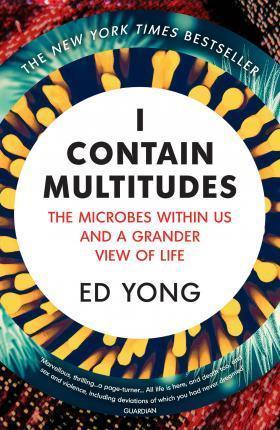Taylor Drew reviewed I Contain Multitudes by Ed Yong
About our invisible buggy friends
5 stars
I saw this misunderstanding somewhere else, so let's get this out of the way right now: this book is about microbes and not some kind of self-help book. It's not going to tell you how to perfectly balance your gut to ensure you don't get any sickness ever.
Now that that's out of the way, I can say that I really enjoyed this book a lot. It's a popular science book I guess, but it's not written in a way that makes definitive guarantees or anything like that. It's just a really fascinating book about microbes and some things that are being done in the field and may be done in the future pending more research.
It was very cool. Excited to read the author's book about animals.
I saw this misunderstanding somewhere else, so let's get this out of the way right now: this book is about microbes and not some kind of self-help book. It's not going to tell you how to perfectly balance your gut to ensure you don't get any sickness ever.
Now that that's out of the way, I can say that I really enjoyed this book a lot. It's a popular science book I guess, but it's not written in a way that makes definitive guarantees or anything like that. It's just a really fascinating book about microbes and some things that are being done in the field and may be done in the future pending more research.
It was very cool. Excited to read the author's book about animals.


